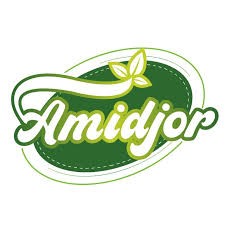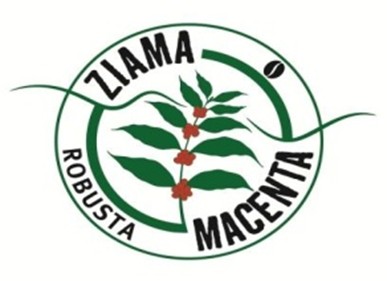Amidjor is a company specialized in agri-food production, processing, and training.

Forest Africa Zambia Limited transforms Zambia’s landscape and nourishes communities through sustainable agroforestry, agribusiness, and food processing.

About Forest Africa Zambia Limited
Company status: Limited
Year of registration: 2017
Number of employees: 20, of which 10 are women
Frazer Handondo, Co-Founder & Director
Frazer Handondo has over 20 years’ experience in the corporate world (banking and manufacturing sector) where he has gained business management capabilities. He also has experience working in the public sector including multilateral development agencies funded projects and supply chain/operations Management.
Frazer believes that the development of Zambia and the entire African landscape lies in building a strong and solid value addition/manufacturing sector. He has a keen interest in the development of rural enterprise and commerce through enhanced value addition of available natural resources with particular interest in the non-timber forest products subsector, especially indigenous wild fruits, and reforestation.
Frazer holds an MSc in Supply Chain Management from the University of Glamorgan in Wales, United Kingdom.
Business model
Mission: Forest Africa’s mission is to achieve the distinction of becoming the leading producer and supplier of highly nutritious, natural organic forest and agricultural products without a cost to the natural environment.
Vision: To be the leading supplier of natural forest and agricultural products within and outside Zambia.
Forest Africa was co-founded by Mr. Frazer Handondo and Ms Farhana Mulla Handondo to fight against deforestation by promoting rural enterprise through principals of ecosystem-based adaptation. The duo believes that monetization of indigenous wild fruits by providing market linkages and integrating rural communities into the wild fruit value chain would provide a sustainable alternative livelihood for rural communities. Together, they bring over 35 years of experience, respectively as supply chain expert and seasoned accountant.
Growing up in rural Zambia, Frazer’s interest in wild fruit began at a young age and this interest motivated him to start a venture which has now grown into a thriving business. Forest Africa is specialising in the processing of indigenous wild fruit based on a zero-waste business model.
Forest Africa is taking the lead in Zambia to process indigenous wild fruits into nutritious products, while promoting the protection of biodiversity and sustainable forest management.
Strong relationships with smallholders, cooperatives…
Forest Africa established sustainable supply chains by building relationships with rural communities who are the primary collectors of wild fruits. They work at the village level with over 200 households in the Southern and Eastern provinces of Zambia, with particular attention centred around vulnerable Women and Youth. The company supports them with enhancing their adaptation to climate change and linked environmental disruptions (such as droughts, floods etc.) Through monetisation of wild fruits under principles of ecosystem-based adaptation.
Forest Africa has also created permanent employment for their factory staff, that is mainly comprises of Women and Youth.
Products and markets
Forest Africa has developed two ranges of products: agrifood products made from wild fruit and charcoal briquettes made from baobab shells.
The baobab (Mabuyu) is used to manufacture various products: the fruit powder is processed into juice, the seeds are pressed into cosmetic oil and baobab nut milk, the fibres are transformed into red tea and the shells are converted into eco-friendly charcoal briquettes.
Additionally, some seeds are reserved for reforestation of the baobab trees.
Forest Africa also processes other wild fruit including the Monkey Bread (Musekese) and the African Madlar (Ngai) into drinks and jam.
The products of Forest Africa are directly supplied to over 200 (small) retail shops (gas stations, small shops, private labels and food service) in the proximity of the Lusaka area, Southern, and Copperbelt Provinces of Zambia. The company plans to grow its market base by expanding throughout Zambia and exporting to neighbouring countries.
Forest Africa products are certified under the Certified Local Supplier scheme of the Zambia Bureau of Standards (ZABS).
Innovations: Milestones and expansion plans
Operating on a zero-waste approach, the company has developed an innovative process to make charcoal briquettes from baobab shells. The company uses this eco-friendly charcoal alternative for their energy requirements, thus saving on energy costs (they do not need to buy traditional lump charcoal) and reducing their environmental impact (the charcoal they use does not come from deforestation).
Forest Africa has created an entry point for Community Based Natural Resources Management (CBNRM) and also saving the seeds accumulated from processing to grow tree seedlings for the wild fruit varieties and start nurseries. This will ensure sustainability of both the natural resources and, in turn, of the business, while also setting the base for business development with entering the carbon market.
The company plans to incorporate its tree planting efforts into future plans for further income diversification through carbon markets. The baobab tree is drought resistant, and a single baobab tree can sequester more carbon than a hectare of Acacia trees, for example.
The company is also working to increase its market presence by expanding both to larger supermarket chains in Zambia and their product availability. The company continuously explores value addition opportunities to offer a wider range of product and to maximise on the circular economy concept. They are looking into the introduction of new products such as the Tobwa (a cereal-based fermented drink), baobab nut milk and baobab tea. Moreover, the residual cake left after pressing oil could be repurposed as fertiliser or livestock feed.
Success factors and lessons learned
Through strategic partnerships and a commitment to sustainable economic development, environmental conservation, and healthier food choices, Forest Africa is using its business to contribute to the achievement of Sustainable Development Goals (SDGs).
By valorising local natural resources that are drought tolerant, Forest Africa enhances the local community’s ability to build resilience to climate change impacts. This prevents local farmers from turning to charcoal production as an alternative source of income when crops agriculture is rendered impossible, thus reducing deforestation. Complementarily, the company supports reforestation and afforestation by growing tree seedlings, starting tree nurseries and replanting trees. Currently, the company has a baobab nursery with over 2,000 seedlings ready for replantation. In an effort to positively collaborate with organisations with similar interests, Forest Africa contributed various indigenous wild fruit seeds to one of the in-country projects managed by an International Organisation who were running a successful tree planting component of their project. This is an example of synergies in the efforts to plant more wild fruit trees.
The eco-inclusive impacts of Forest Africa have been acknowledged with the company winning the 2023 Climate Adaptation Award by SEED (a global partnership for action on sustainable development and the green economy).
Through this business model, Forest Africa offers local communities reasonable market prices for their wild fruits, creating a sustainable income source in exchange of a consistent supply of raw materials.
The end-food products also contribute to strengthening nutrition.
Lastly, to ensure a high market acceptance of their products, the company actively uses social platforms, such as Facebook, to advertise its products and engage with consumers. The company also develops connections with major retailers to continuously expand their selling points.
Additional Resources
Join our Forum to discuss and explore how to encourage innovations across agricultural value chains to transform food systems in African, Caribbean and Pacific countries and beyond, promote sustainable agriculture & leverage investments. Share insights, ask questions, and collaborate on innovative solutions for a greener future.
Recent Business Profiles

Amidjor is a company specialized in agri-food production, processing, and training.

ADECAM is a community-driven organisation in Guinea dedicated to protecting, promoting, and developing the Ziama-Macenta Geographical Indication coffee, while supporting smallholder producers...

Tac Maz Sustainable Ventures is a climate-smart social enterprise in Malawi supporting smallholder farmers through sustainable poultry and horticulture production.

Bono Salus is a Zimbabwean woman-led agribusiness specializing in urban hydroponic farming of microgreens.

The Nut Place is a Nigerian food innovation company that processes locally grown edible nuts into gluten-free, nutrient-dense products to improve nutrition, reduce post-harvest losses, and promote...